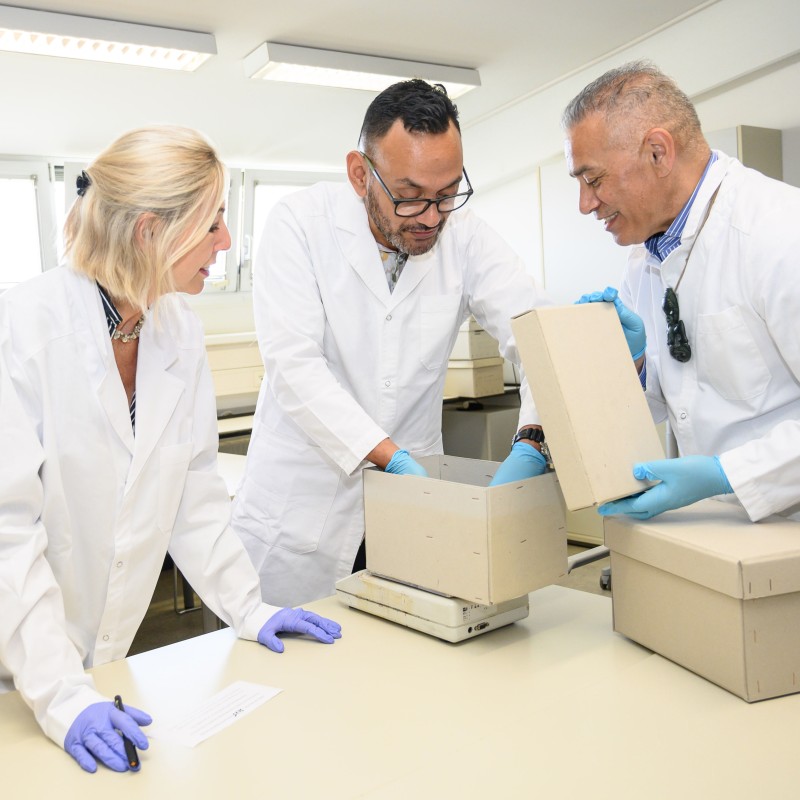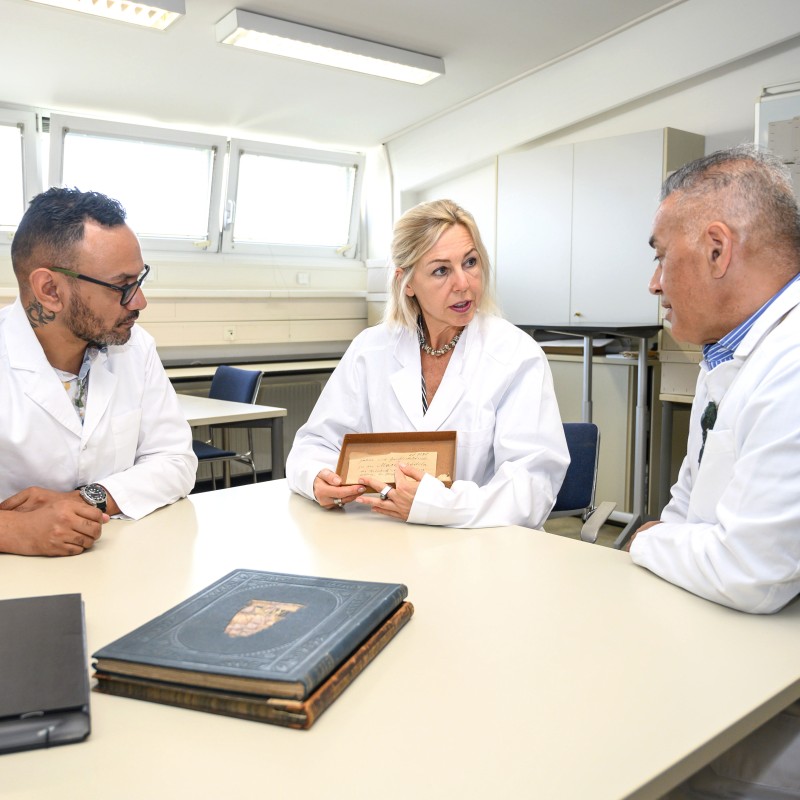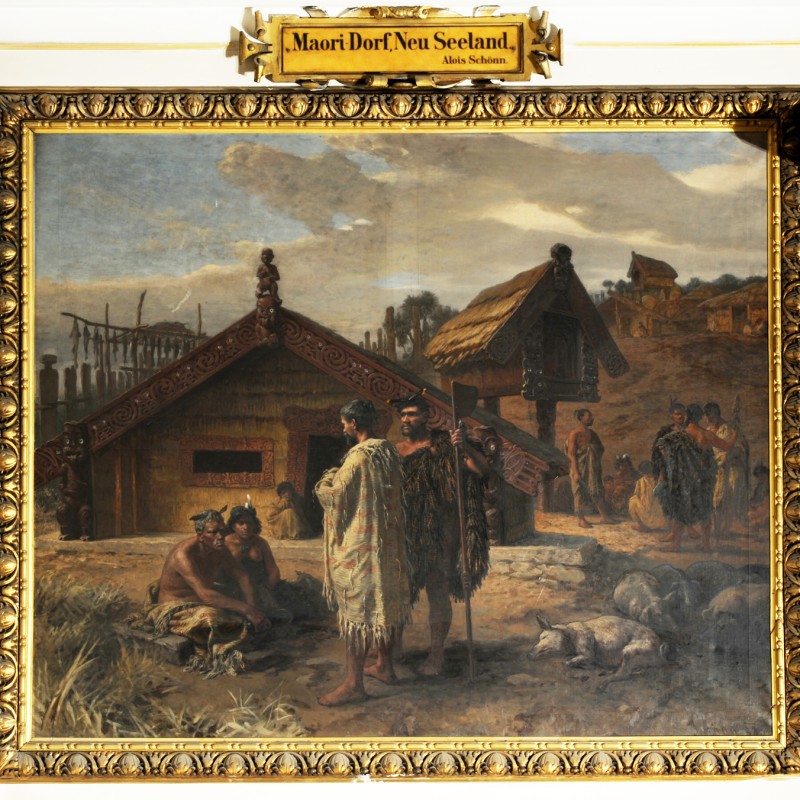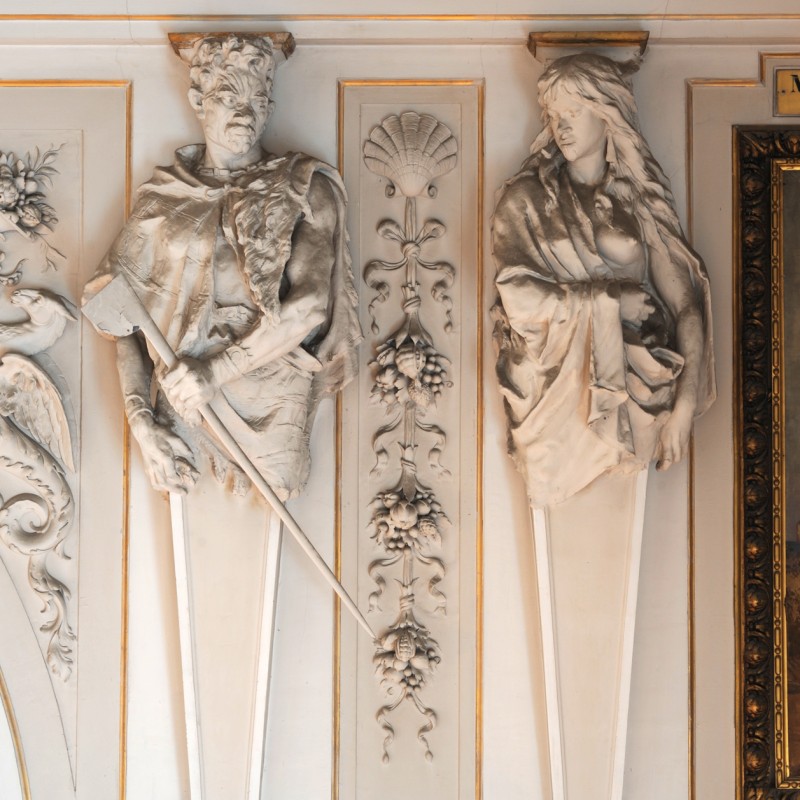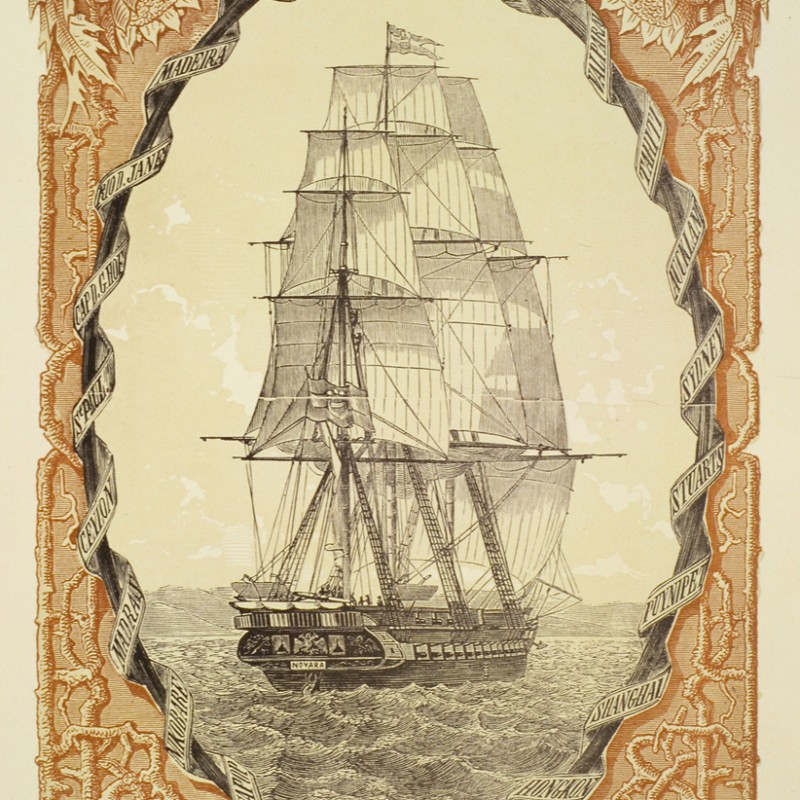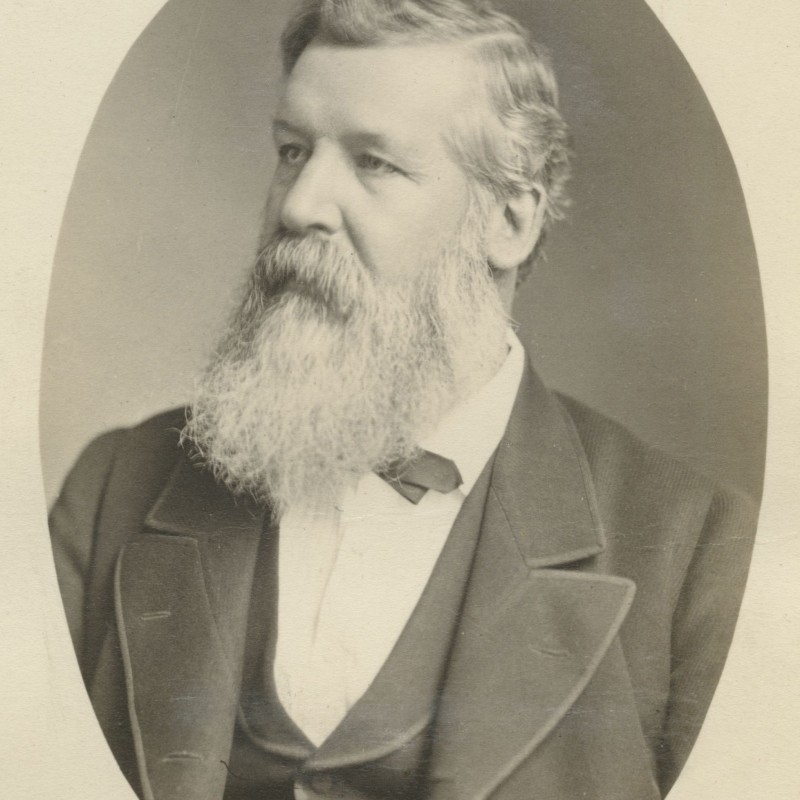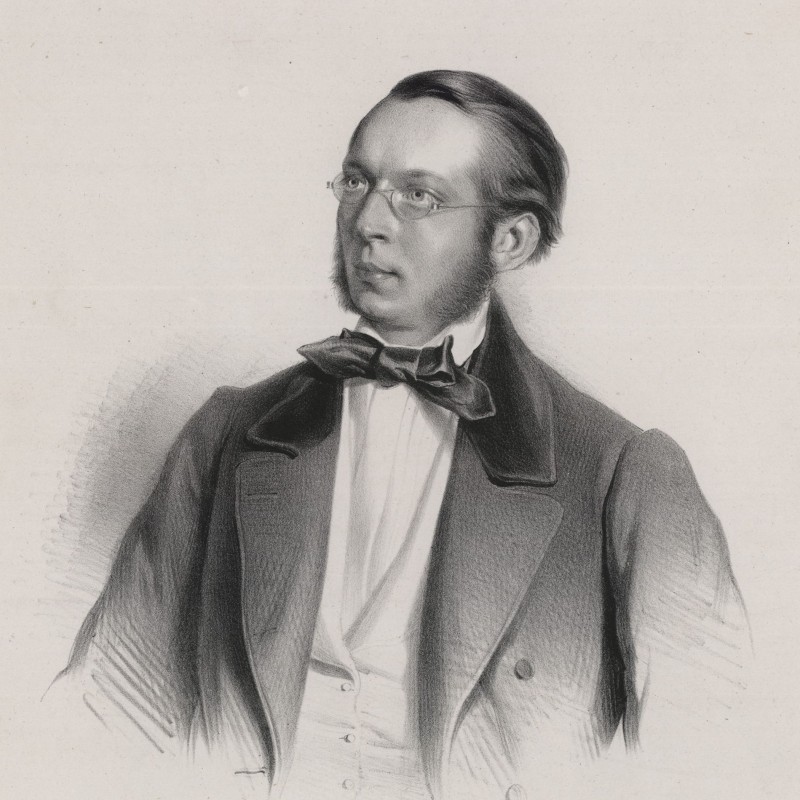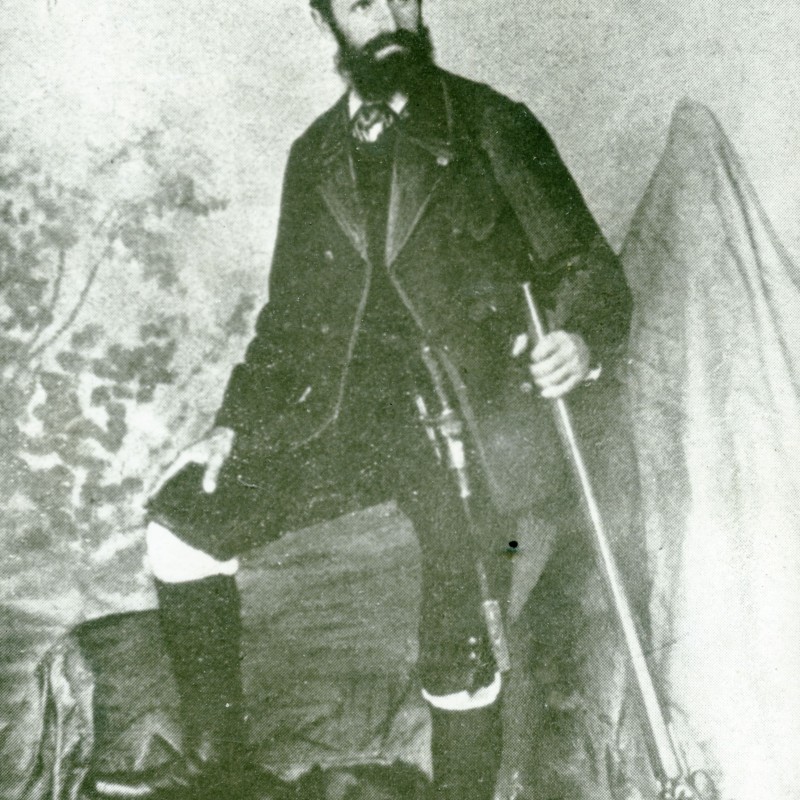Repatriation Ceremony for ancestors returning to Aotearoa New Zealand
27. September 2022
Invitation for press representantives and journalists on Tuesday, September 27th 2022, 9.30 a.m.:
The Karanga Aotearoa Repatriation Programme is undertaking the repatriation of Māori and Moriori ancestral remains from the collections of the Natural History Museum Vienna, Austria. This project is facilitated in partnership between the Te Papa Tongarewa Museum (Wellington), the Natural History Museum Vienna, the Austrian Government, and the New Zealand Embassy to Vienna.
The Karanga Aotearoa Repatriation Programme is undertaking the repatriation of Māori and Moriori ancestral remains from the collections of the Natural History Museum Vienna, Austria. This project is facilitated in partnership between the Te Papa Tongarewa Museum (Wellington), the Natural History Museum Vienna, the Austrian Government, and the New Zealand Embassy to Vienna.
Tuesday, September 27th 2022, 9.30 a.m.
Formal Handover ceremony
9.30 | Arrival at the NHM Vienna
9.50 | Māori ceremonial entrance of delegation and ancestors with prayers and sacred calls
10.00 | Speeches and songs by Te Papa and Aotearoa kaikōrero (speakers)
Mr. Parone Gloyne (Māori cultural expert, Te Papa)
Dr. Arapata Hakiwai (Māori co-leader, Te Papa)
His Excellency Ambassador Brian Hewson (New Zealand Ambassador to Austria)
10.20 | Austrian speakers
Mag. Jürgen Meindl (Head of the Department for Arts and Culture, Federal Ministry for Arts, Culture, Civil Service and Sport)
Dr. Katrin Vohland (General Director, NHM Vienna)
Prof. Dr. Sabine Eggers (Curator, NHM Vienna)
Songs & music by "Philharmonischer Chor der Universität Wien"
10.50 | Signing of transfer agreement and exchange of gifts
11.00 | Refreshments, Light Kapu Ti
Interview opportunities
12.00 | Presentations, panel discussion, questions & answers: challenges and opportunities of indigenous repatriation
Presenters
Prof. Dr. Sabine Eggers (NHM Vienna)
Mr. Te Herekiekie Herewini (Karanga Aotearoa)
Mr. Te Arikirangi Mamaku-Ironside (Karanga Aotearoa)
Panel members
Dr. Arapata Hakiwai (Te Papa)
Mr. Paraone Gloyne (Te Papa)
Ms. Ngahuia Kopa (Te Papa)
Ms. Hinemoana Baker (Te Papa)
in addition to presenters
13.30 | Lunch
Please wear dark clothing suitable to the occasion.
An answer under presse@nhm.at is requested.
Provenance research
The ancestral human remains (kōiwi tangata / kōimi tchakat) from Aotearoa New Zealand and Rēkohu Chatham Islands which were integrated into the collection of the NHM Vienna during the 19th century include skulls of children, juveniles, men, and women. The provenance research of these human remains was started by the Museum of New Zealand Te Papa Tongarewa (Te Papa), Wellington, which initiates and coordinates repatriation procedures from all parts of the world with support from the New Zealand government. According to subsequent detailed interdisciplinary provenance research on the origin of these human remains, it is strongly suggested that they were unlawfully exhumed from their primary resting place against the will of Māori and Moriori communities. They were incorporated into the osteological collection at the NHM Vienna through trade, exchange, and as gifts. This conclusion was achieved through the collaboration of a team of scientists and students from Te Papa and the Department of Anthropology at the NHM Vienna. Based on these results described in the official dossier, on the International Ethics Standards (specifically Art. 12 from the United Nations Declaration on the Rights of Indigenous Peoples) and on recommendations from Te Papa, the Republic of Austria strongly endorses the repatriation of these kōiwi tangata and kōimi tchakat.
Repatriation
The repatriation of human remains intends to acknowledge the ethical and moral injustice caused by ruthless collection practices. Human remains from ancestors of indigenous communities were illicitly removed from their sacred burial sites, under complete disregard for their worldviews and moral concepts. They were studied craniometrically, racialized, and displayed to the European public without consent. This deprived them of their cultural importance and degraded them to mere collection objects. For both, Māori and Moriori communities, returning their ancestral human remains held in museum collections represents restoration of human dignity and cultural identity as well as the re-establishment of the right of indigenous communities to care for their ancestors.
Formal Handover ceremony
9.30 | Arrival at the NHM Vienna
9.50 | Māori ceremonial entrance of delegation and ancestors with prayers and sacred calls
10.00 | Speeches and songs by Te Papa and Aotearoa kaikōrero (speakers)
Mr. Parone Gloyne (Māori cultural expert, Te Papa)
Dr. Arapata Hakiwai (Māori co-leader, Te Papa)
His Excellency Ambassador Brian Hewson (New Zealand Ambassador to Austria)
10.20 | Austrian speakers
Mag. Jürgen Meindl (Head of the Department for Arts and Culture, Federal Ministry for Arts, Culture, Civil Service and Sport)
Dr. Katrin Vohland (General Director, NHM Vienna)
Prof. Dr. Sabine Eggers (Curator, NHM Vienna)
Songs & music by "Philharmonischer Chor der Universität Wien"
10.50 | Signing of transfer agreement and exchange of gifts
11.00 | Refreshments, Light Kapu Ti
Interview opportunities
12.00 | Presentations, panel discussion, questions & answers: challenges and opportunities of indigenous repatriation
Presenters
Prof. Dr. Sabine Eggers (NHM Vienna)
Mr. Te Herekiekie Herewini (Karanga Aotearoa)
Mr. Te Arikirangi Mamaku-Ironside (Karanga Aotearoa)
Panel members
Dr. Arapata Hakiwai (Te Papa)
Mr. Paraone Gloyne (Te Papa)
Ms. Ngahuia Kopa (Te Papa)
Ms. Hinemoana Baker (Te Papa)
in addition to presenters
13.30 | Lunch
Please wear dark clothing suitable to the occasion.
An answer under presse@nhm.at is requested.
Provenance research
The ancestral human remains (kōiwi tangata / kōimi tchakat) from Aotearoa New Zealand and Rēkohu Chatham Islands which were integrated into the collection of the NHM Vienna during the 19th century include skulls of children, juveniles, men, and women. The provenance research of these human remains was started by the Museum of New Zealand Te Papa Tongarewa (Te Papa), Wellington, which initiates and coordinates repatriation procedures from all parts of the world with support from the New Zealand government. According to subsequent detailed interdisciplinary provenance research on the origin of these human remains, it is strongly suggested that they were unlawfully exhumed from their primary resting place against the will of Māori and Moriori communities. They were incorporated into the osteological collection at the NHM Vienna through trade, exchange, and as gifts. This conclusion was achieved through the collaboration of a team of scientists and students from Te Papa and the Department of Anthropology at the NHM Vienna. Based on these results described in the official dossier, on the International Ethics Standards (specifically Art. 12 from the United Nations Declaration on the Rights of Indigenous Peoples) and on recommendations from Te Papa, the Republic of Austria strongly endorses the repatriation of these kōiwi tangata and kōimi tchakat.
Repatriation
The repatriation of human remains intends to acknowledge the ethical and moral injustice caused by ruthless collection practices. Human remains from ancestors of indigenous communities were illicitly removed from their sacred burial sites, under complete disregard for their worldviews and moral concepts. They were studied craniometrically, racialized, and displayed to the European public without consent. This deprived them of their cultural importance and degraded them to mere collection objects. For both, Māori and Moriori communities, returning their ancestral human remains held in museum collections represents restoration of human dignity and cultural identity as well as the re-establishment of the right of indigenous communities to care for their ancestors.
Prof. Dr. Sabine Eggers (NHM), Mr. Te Arikirangi Mamaku-Ironside (Karanga
Aotearoa), Mr. Te Herekiekie Herewini (Karanga Aotearoa)
(c) NHM Wien, Christina Rittmannsperger
Mr. Te Arikirangi Mamaku-Ironside (Karanga Aotearoa), Prof. Dr. Sabine
Eggers (NHM), Mr. Te Herekiekie Herewini (Karanga Aotearoa)
(c) NHM Wien, Christina Rittmannsperger
Decorative caryatid by Viktor Tilgner (1844-1896), representing a tattooed Māori
man holding a tewhatewha axe
(c) NHM Wien

